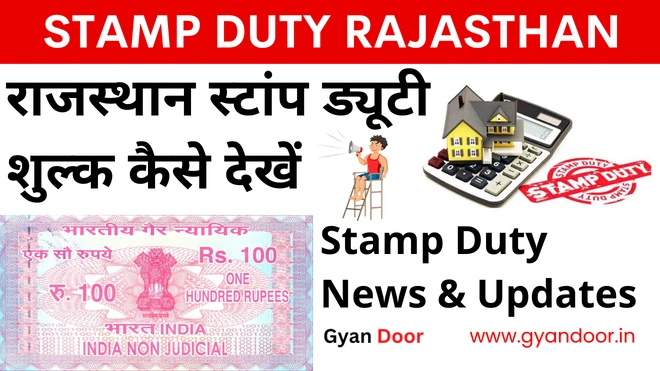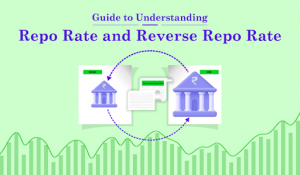Stamp duty is a mandatory charge levied by the government on legal documents, serving as proof of property or asset ownership. In Rajasthan, stamp duty plays a vital role in property transactions, partnership deeds, gift deeds, and various financial agreements. Understanding the nuances of stamp duty in Rajasthan ensures that buyers and sellers are well-prepared to meet these obligations without surprises. In this blog, we’ll delve deep into every aspect of stamp duty in Rajasthan, covering types, charges, exemptions, and detailed processes.
What is Stamp Duty?
Stamp duty is a tax that must be paid on legal documents such as sale deeds, gift deeds, and loan agreements. It is essential to ensure these documents are legally enforceable. Each state in India, including Rajasthan, determines its rates, and these vary based on factors such as property type, value, and transaction purpose.
Stamp Duty in Rajasthan on Property
In Rajasthan, property transactions attract stamp duty based on the property type and location. For residential, commercial, and agricultural land, the rates differ. Here’s a quick breakdown:
| Transaction Type |
Stamp Duty Rate |
Registration Fee |
| Urban Residential Property |
6% |
1% |
| Rural Residential Property |
5% |
1% |
| Agricultural Land |
5% |
1% |
Note: Women buyers enjoy a concession of 1% on stamp duty charges in Rajasthan.
Gift Deed Stamp Duty in Rajasthan
Gift deeds, a popular method of transferring property within families, are subject to specific stamp duty charges. The rates depend on the relationship between the donor and the recipient:
- Stamp Duty on Gift Deed in Blood Relation in Rajasthan: Minimal stamp duty is charged when the transfer occurs between blood relatives, such as parents, children, or siblings.
- Stamp Duty on Gift Deed in Rajasthan: For non-blood relations, standard rates apply, typically around 6%.
Stamp Duty in Rajasthan for Agricultural Land
Agricultural land transactions in Rajasthan attract a 5% stamp duty. These rates are lower than those for residential or commercial properties, encouraging agricultural development.
Stamp Duty in Rajasthan for Bank Guarantee
A bank guarantee is an essential financial instrument that also requires stamp duty. In Rajasthan, the duty is nominal and depends on the amount guaranteed. For instance, a 0.5% charge may apply on the guarantee amount, ensuring financial agreements remain valid.
Stamp Duty in Rajasthan for Home Loan Agreement

When obtaining a home loan, the borrower must execute a loan agreement. The stamp duty for such agreements in Rajasthan ranges between 0.1% and 0.5% of the loan amount. Proper stamping ensures the document’s legal validity in case of disputes.
Stamp Duty in Rajasthan for Partnership Deed
For business owners entering a partnership, executing a partnership deed is mandatory. The partnership deed stamp duty in Rajasthan depends on the partnership’s capital contribution:
| Capital Contribution |
Stamp Duty |
| Up to ₹50,000 |
₹500 |
| Above ₹50,000 |
1% of the amount (up to ₹10,000 max) |
Stamp Duty Exemption in Rajasthan
Rajasthan provides certain exemptions to make transactions more affordable:
- Transfer of property to immediate family members.
- Concessions for women and senior citizens.
- Rural land transactions for agricultural purposes.
Comparison: Stamp Duty in Rajasthan vs. Gujarat (Ahmedabad)
When comparing stamp duty in Gujarat (Ahmedabad) with Rajasthan, the rates in Gujarat tend to be slightly higher for urban properties, ranging between 4% and 6%, plus additional surcharges. This comparison highlights the affordability of property transactions in Rajasthan.
Stamp Duty and Registration Charges in Rajasthan 2025
Stamp duty and registration charges are crucial components of property transactions. Here’s a snapshot of the current rates for 2025:
| Type of Property |
Stamp Duty |
Registration Fee |
| Residential Property |
6% |
1% |
| Agricultural Land |
5% |
1% |
| Gift Deed (Blood Relation) |
Nominal |
1% |
Conclusion
Understanding stamp duty in Rajasthan is crucial for anyone involved in property transactions or legal agreements. The state’s rates are competitive, with concessions for women, senior citizens, and rural property transactions. Whether you’re buying property, creating a partnership deed, or securing a bank guarantee, ensuring compliance with stamp duty regulations can save you from potential legal hassles.
At Housiey, we aim to simplify property-related queries, offering valuable insights for homebuyers and investors.
If you’re interested in exploring more, don’t miss our blog on “Stamp Duty in Gujarat.”
FAQs
Stamp duty is a mandatory charge levied by the government on legal documents, serving as proof of property or asset ownership. In Rajasthan, stamp duty plays a vital role in property transactions, partnership deeds, gift deeds, and various financial agreements. Understanding the nuances of stamp duty in Rajasthan ensures that buyers and sellers are well-prepared to meet these obligations without surprises. In this blog, we’ll delve deep into every aspect of stamp duty in Rajasthan, covering types, charges, exemptions, and detailed processes.
What is Stamp Duty?
Stamp duty is a tax that must be paid on legal documents such as sale deeds, gift deeds, and loan agreements. It is essential to ensure these documents are legally enforceable. Each state in India, including Rajasthan, determines its rates, and these vary based on factors such as property type, value, and transaction purpose.
Stamp Duty in Rajasthan on Property
In Rajasthan, property transactions attract stamp duty based on the property type and location. For residential, commercial, and agricultural land, the rates differ. Here’s a quick breakdown:
| Transaction Type |
Stamp Duty Rate |
Registration Fee |
| Urban Residential Property |
6% |
1% |
| Rural Residential Property |
5% |
1% |
| Agricultural Land |
5% |
1% |
Note: Women buyers enjoy a concession of 1% on stamp duty charges in Rajasthan.
Gift Deed Stamp Duty in Rajasthan
Gift deeds, a popular method of transferring property within families, are subject to specific stamp duty charges. The rates depend on the relationship between the donor and the recipient:
- Stamp Duty on Gift Deed in Blood Relation in Rajasthan: Minimal stamp duty is charged when the transfer occurs between blood relatives, such as parents, children, or siblings.
- Stamp Duty on Gift Deed in Rajasthan: For non-blood relations, standard rates apply, typically around 6%.
Stamp Duty in Rajasthan for Agricultural Land
Agricultural land transactions in Rajasthan attract a 5% stamp duty. These rates are lower than those for residential or commercial properties, encouraging agricultural development.
Stamp Duty in Rajasthan for Bank Guarantee
A bank guarantee is an essential financial instrument that also requires stamp duty. In Rajasthan, the duty is nominal and depends on the amount guaranteed. For instance, a 0.5% charge may apply on the guarantee amount, ensuring financial agreements remain valid.
Stamp Duty in Rajasthan for Home Loan Agreement

When obtaining a home loan, the borrower must execute a loan agreement. The stamp duty for such agreements in Rajasthan ranges between 0.1% and 0.5% of the loan amount. Proper stamping ensures the document’s legal validity in case of disputes.
Stamp Duty in Rajasthan for Partnership Deed
For business owners entering a partnership, executing a partnership deed is mandatory. The partnership deed stamp duty in Rajasthan depends on the partnership’s capital contribution:
| Capital Contribution |
Stamp Duty |
| Up to ₹50,000 |
₹500 |
| Above ₹50,000 |
1% of the amount (up to ₹10,000 max) |
Stamp Duty Exemption in Rajasthan
Rajasthan provides certain exemptions to make transactions more affordable:
- Transfer of property to immediate family members.
- Concessions for women and senior citizens.
- Rural land transactions for agricultural purposes.
Comparison: Stamp Duty in Rajasthan vs. Gujarat (Ahmedabad)
When comparing stamp duty in Gujarat (Ahmedabad) with Rajasthan, the rates in Gujarat tend to be slightly higher for urban properties, ranging between 4% and 6%, plus additional surcharges. This comparison highlights the affordability of property transactions in Rajasthan.
Stamp Duty and Registration Charges in Rajasthan 2025
Stamp duty and registration charges are crucial components of property transactions. Here’s a snapshot of the current rates for 2025:
| Type of Property |
Stamp Duty |
Registration Fee |
| Residential Property |
6% |
1% |
| Agricultural Land |
5% |
1% |
| Gift Deed (Blood Relation) |
Nominal |
1% |
Conclusion
Understanding stamp duty in Rajasthan is crucial for anyone involved in property transactions or legal agreements. The state’s rates are competitive, with concessions for women, senior citizens, and rural property transactions. Whether you’re buying property, creating a partnership deed, or securing a bank guarantee, ensuring compliance with stamp duty regulations can save you from potential legal hassles.
At Housiey, we aim to simplify property-related queries, offering valuable insights for homebuyers and investors.
If you’re interested in exploring more, don’t miss our blog on “Stamp Duty in Gujarat.”
FAQs







